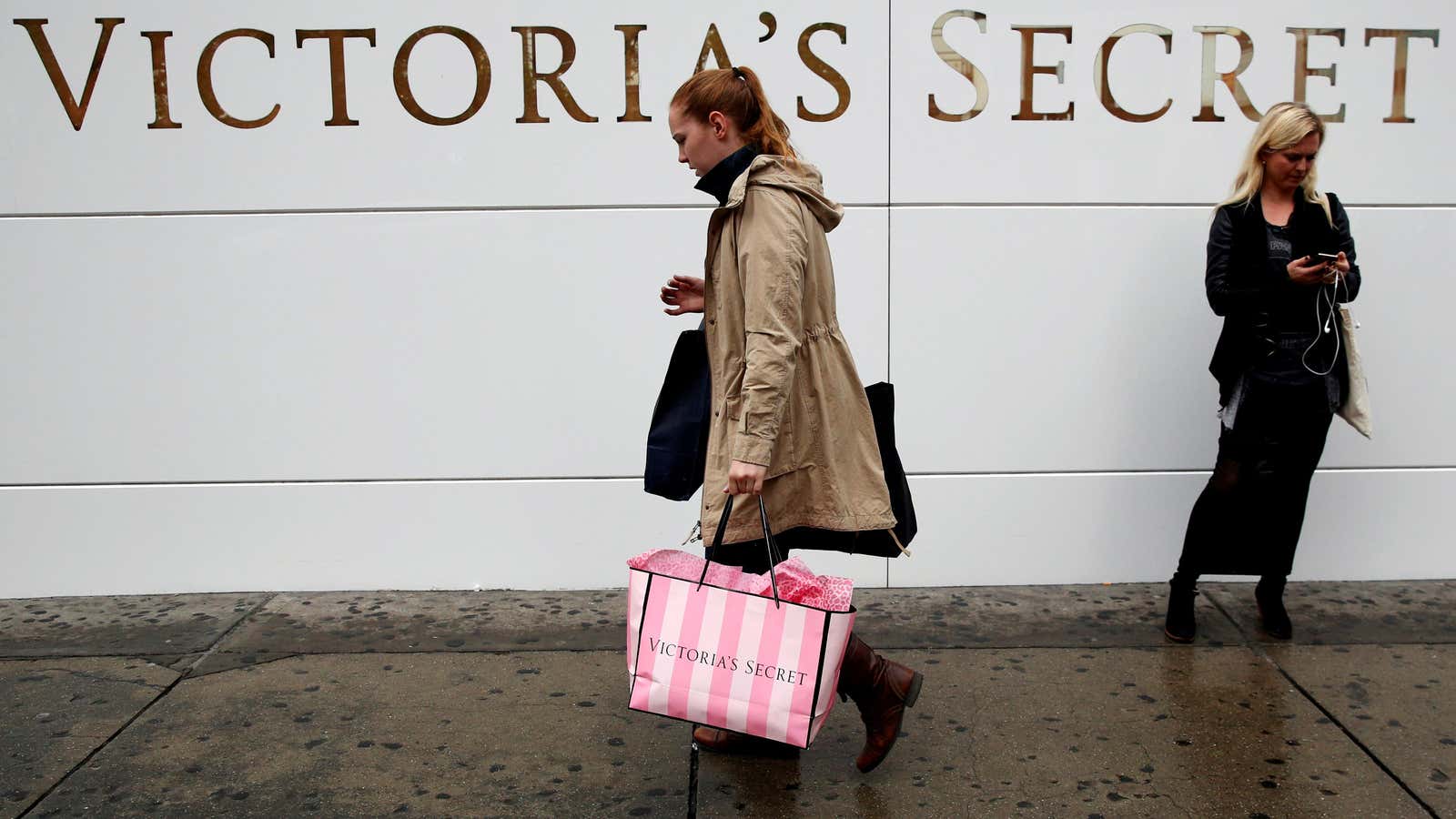Les Wexner, who bought a little-known lingerie brand called Victoria’s Secret in 1982 and turned it into an underwear empire, is stepping down from his role as CEO and chairman of Victoria’s Secret’s parent company, L Brands.
In a deal first reported by the Wall Street Journal and officially announced today, private-equity firm Sycamore Partners will buy 55% of Victoria’s Secret from L Brands for $525 million. When the transaction closes, Wexner will leave his position as top boss of L Brands, the company he has run for more than 50 years. He will remain on the board. Andrew Meslow, currently the chief operating officer of Bath & Body Works—the other big label in the L Brands portfolio—will become CEO.
Victoria’s Secret makes up the bulk of L Brands’ sales—about 58% as of last February, when it filed its most recent full-year earnings report. The label rose to prominence on its overtly sexy image, built on push-up bras and a rotating roster of professionally toned models it dubbed “angels.” As it spread through US malls with its perfumed, boudoir-style stores, it came to dominate the bra business.
But shoppers—and retail—have changed. The focus on a narrow idea of female beauty left the door open to competitors championing an array of bodies. Numerous malls have watched their visitors decline. Victoria’s Secret’s image began to feel outdated—a situation only made worse by public comments about plus-size and trans models from its former chief marketer, Ed Razek. Ratings have plunged for its annual televised fashion show. Top executives have left. Sales have fallen and stores have closed.
Wexner has also faced questions about his relationship with Jeffrey Epstein, who died in prison while facing federal sex-trafficking charges. He was a close advisor and money manager to Wexner for years, though Wexner has denied any knowledge of Epstein’s crimes and tried to distance himself from the alleged pedophile.
Victoria’s Secret has made some overtures toward change, hiring a slightly more curvy model and its first trans model. But it still has a long way to go to turn its slumping sales around.
In its announcement, L Brands said the decision to sell the brand was intended to deliver more value to L Brands shareholders by leaving Bath & Body Works as a standalone company. Victoria’s Secret, which includes sub-brands Victoria’s Secret Beauty and Pink, will go private, with L Brands retaining a 45% stake. The focus will be on returning the label to “historic levels” of profitability and growth.
The deal values Victoria’s Secret at $1.1 billion. A retail analyst at the firm Bernstein told the Journal Sycamore was likely paying a below-average multiple of sales or earnings, adding “though we are not too surprised by this given the rapid drop in VS’s profitability over the last few years.”
